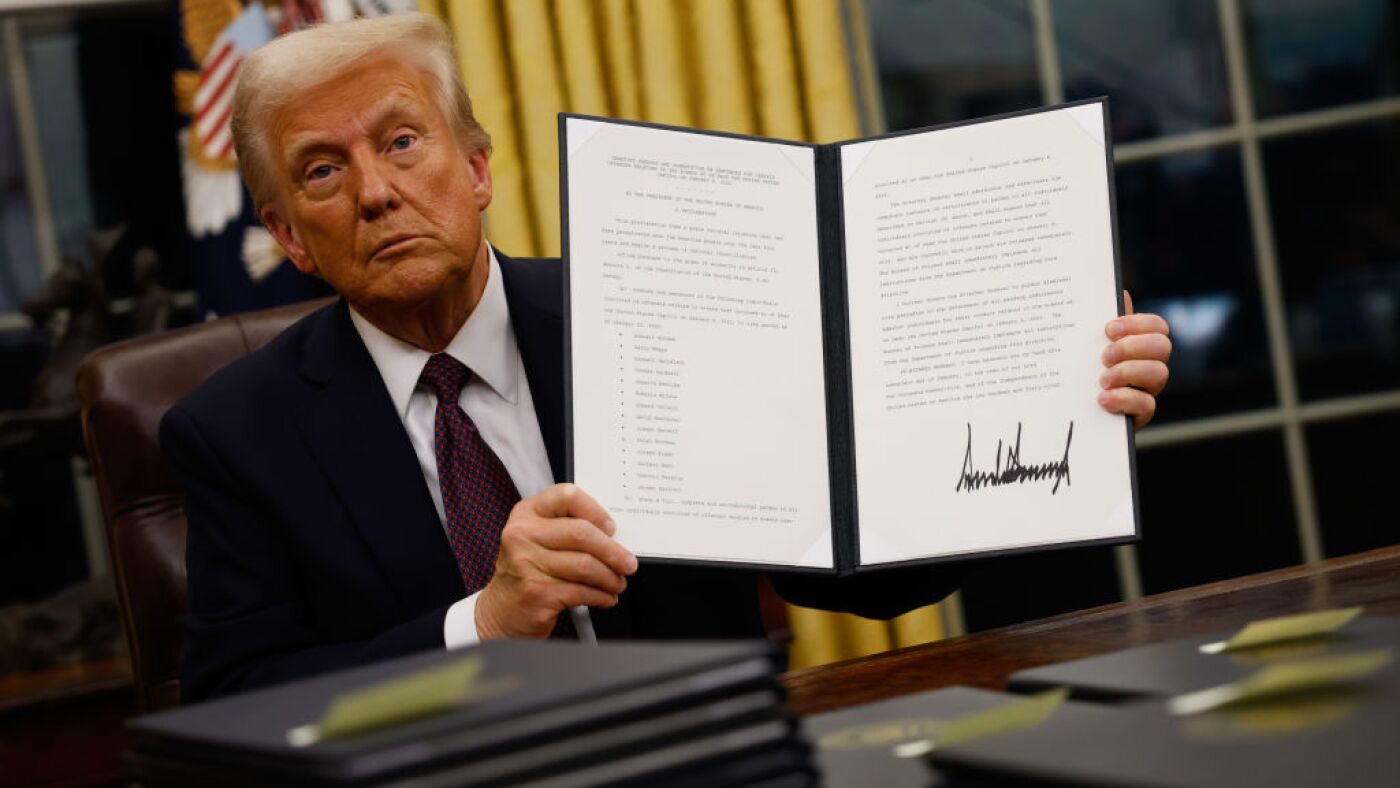Analysis: Trump's Potential Trade Agreement With Britain

Table of Contents
Political Landscape and Negotiating Power
Trump's "America First" Agenda
Trump's "America First" agenda significantly influenced the potential negotiations for a US-UK trade deal. His protectionist policies and emphasis on bilateral trade agreements, rather than multilateral ones, meant a focus on securing advantageous terms for the US.
- Emphasis on Reciprocal Trade: The Trump administration prioritized reciprocal trade deals, demanding a balance of benefits for both sides. Any perceived imbalance could have led to retaliatory measures.
- Potential for Tariffs: The threat of imposing tariffs on British goods deemed unfairly traded was a constant factor. This created pressure on the UK to concede on certain issues.
- Prioritization of American Interests: American interests were paramount in Trump's approach, potentially overshadowing concerns about the overall impact on the UK economy.
Brexit's Impact on British Negotiating Position
Brexit significantly weakened Britain's negotiating position. The uncertainty surrounding Brexit's final form, coupled with internal divisions within the UK, created complexities.
- Uncertainty surrounding Brexit: The lack of clarity about the UK's future relationship with the EU made it difficult to predict the long-term economic consequences of a US trade deal.
- Potential Loss of Access to EU Single Market: The potential loss of access to the EU single market severely hampered the UK's economic leverage in negotiations with the US.
- Impact on British Economic Stability: The economic instability caused by Brexit made the UK more vulnerable to concessions in trade negotiations. This created a potentially unequal bargaining position compared to the US.
Economic Implications of a US-UK Trade Deal
Potential Benefits for the US
A US-UK trade deal held the potential for significant economic advantages for the United States.
- Reduced Tariffs on Agricultural Products: Reduced or eliminated tariffs on American agricultural exports would have boosted sales to the UK market.
- Increased Exports of Manufactured Goods: Increased market access for American manufactured goods could have stimulated economic growth in various sectors.
- Potential for Investment Growth: A trade deal could have attracted increased investment from both countries, further stimulating economic activity.
Potential Benefits for the UK
The UK also stood to gain economically from a successful Trump Britain trade agreement.
- Access to the Large US Market: The US represents a vast and lucrative market for British goods and services.
- Potential Boost to the British Economy: A trade deal could have provided a significant boost to the UK economy, particularly in sectors like financial services.
- Opportunities for Specific Sectors: Certain British sectors, such as financial services, could have benefited disproportionately from increased access to the US market.
Potential Economic Drawbacks
However, a US-UK trade deal also presented potential economic drawbacks for both nations.
- Potential Job Losses: Increased competition from imported goods could lead to job losses in certain sectors in both countries.
- Increased Trade Deficits: The deal could have worsened existing trade imbalances, benefiting one nation at the expense of the other.
- Challenges in Regulatory Harmonization: Differences in regulations and standards could create challenges for businesses, increasing costs and complexities.
Key Issues and Potential Sticking Points
Agricultural Trade
Agricultural trade was a major potential sticking point in a potential Trump Britain trade agreement.
- Chlorinated Chicken Debate: The "chlorinated chicken" debate highlighted the differences in food safety regulations between the US and the UK.
- Differences in Food Safety Regulations: These differences created significant hurdles to overcome in reaching an agreement on agricultural products.
- Potential Tariffs on Agricultural Imports: The threat of tariffs on agricultural imports could have negatively impacted both countries' agricultural sectors.
Data Privacy and Regulatory Harmonization
Harmonizing data privacy regulations and other regulatory frameworks presented a substantial challenge.
- Differences between GDPR and US data privacy laws: Significant differences between the GDPR (General Data Protection Regulation) and US data privacy laws created a complex issue.
- Potential Friction in Financial Services Regulation: Different regulatory frameworks in financial services could have led to friction between the two countries.
- Need for Regulatory Cooperation: Reaching a compromise on regulatory issues required significant cooperation and compromise from both sides.
National Security Concerns
National security concerns could have significantly impacted negotiations.
- Concerns over Technology Transfers: The US might have imposed restrictions on the transfer of certain technologies to the UK for national security reasons.
- Potential Restrictions on Certain Exports: Similarly, the UK might have imposed export restrictions on sensitive technologies to protect its national security interests.
- Impact of Foreign Investment Regulations: Foreign investment regulations on both sides could have created additional challenges.
Conclusion
The potential Trump Britain trade agreement presented a complex interplay of political, economic, and regulatory factors. While potential benefits existed for both nations, including increased market access and economic growth, significant challenges related to differing regulations, national security concerns, and the legacy of Brexit needed to be addressed. Understanding the nuances of the potential Trump Britain trade agreement, or lack thereof, offers valuable insight into the complexities of international trade negotiations. Further research on the intricacies of international trade agreements is crucial for understanding the potential impacts of future deals, particularly those involving major global players. Continue to explore the various perspectives on Trump Britain trade agreement analysis to form your own informed conclusions.

Featured Posts
-
 Young Thugs Uy Scuti Album Release Date Teased
May 10, 2025
Young Thugs Uy Scuti Album Release Date Teased
May 10, 2025 -
 10 Tariff Baseline Trumps Trade Policy And The Path To Exceptions
May 10, 2025
10 Tariff Baseline Trumps Trade Policy And The Path To Exceptions
May 10, 2025 -
 Survey Sharing The Impact Of Trumps Executive Orders On Transgender Americans
May 10, 2025
Survey Sharing The Impact Of Trumps Executive Orders On Transgender Americans
May 10, 2025 -
 Palantir Stock Investment Strategy Before May 5th Earnings Release
May 10, 2025
Palantir Stock Investment Strategy Before May 5th Earnings Release
May 10, 2025 -
 Un Debut D Incendie A La Mediatheque Champollion De Dijon
May 10, 2025
Un Debut D Incendie A La Mediatheque Champollion De Dijon
May 10, 2025
